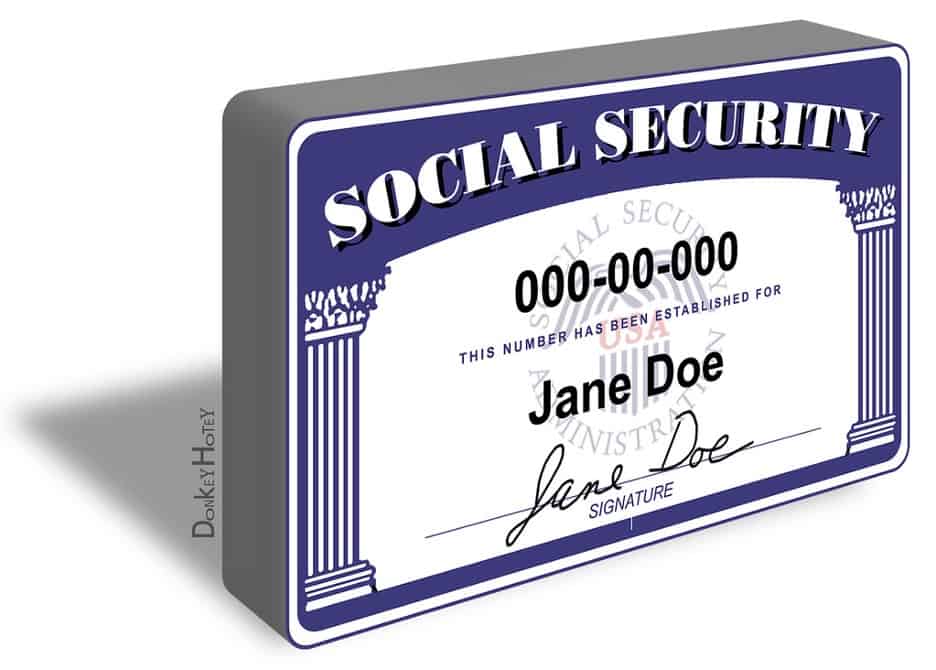The Federal Circuit has affirmed a Patent Trial and Appeal Board (PTAB) finding that claims to a computer system for identifying eligibility for Social Security Disability Insurance (SSDI) benefits are invalid as patent ineligible.
The patent application at issue relates to a process for looking up information in (1) a Federal Social Security database; and (2) a state database containing records for patients receiving treatment for developmental disabilities or mental illness.
For patients identified in the state database as meeting certain criteria but not currently receiving SSDI benefits, the method uses relevant information to determine if a given patient is entitled to receive SSDI benefits.
According to the application by inventor Jeffrey A. Killian,
the automated system seamlessly carries out the process of determining who is eligible for SSDI and who is not, which frees up assigned staff to perform more traditional duties.
The patent examiner rejected all pending claims of the ’042 application under 35 U.S.C. § 101, which states:
Whoever invents or discovers any new and useful process, machine, manufacture, or composition of matter, or any new and useful improvement thereof, may obtain a patent therefor, subject to the conditions and requirements of this title.
The US Supreme Court has long held that “[l]aws of nature, natural phenomena, and abstract ideas are not patentable” under § 101.
The patent examiner found that the claims were directed to the abstract idea of “determining eligibility for social security disability insurance . . . benefits” and lacked additional elements amounting to significantly more than the abstract idea because the additional elements were simply generic recitations of generic computer functionalities.
The inventor appealed to the PTAB, which affirmed, finding that the claims were directed to the patent-ineligible abstract idea of “a search algorithm for identifying people who may be eligible for SSDI benefits they are not receiving.”
The PTAB determined that the essential steps recited by claim 1—the “selecting” and “determining” limitations—can be performed in the human mind and are thus “an abstract mental process.”
The PTAB also found that
the remaining steps were merely directed to data gathering or data output and were therefore appropriately categorized as “insignificant extra-solution activity” or “primitive computer operations found in any computer system” “which do not integrate the processes into a ‘practical application,’ and which do not recite an ‘inventive concept.’”
The inventor then turned to the Federal Circuit. He argued that the standard promulgated in the US Supreme Court cases of Alice Corp. Pty. v. CLS Bank Int’l and Mayo Collaborative Services v. Prometheus Laboratories, Inc. for determining whether claimed subject matter falls within one of the judicial exceptions to patent eligibility was arbitrary and capricious under the Administrative Procedure Act (APA) and the Due Process Clause of the Fifth Amendment to the US Constitution.
He sought “a single non-capricious definition or limiting principle” to replace the allegedly vague terms “abstract idea” and “inventive concept” used in Alice and Mayo.
The court suggested that what he was requesting was impossible:
As to the abstract idea exception, no single, hard-and-fast rule that automatically outputs an answer in all contexts exists because there are different types of abstract ideas, including (1) methods of organizing human activity, such as “fundamental economic practice[s]”… (2) claims to mental processes, even if performed on a computer rather than in the human mind; … and (3) claims to results rather than to a means of achieving the claimed result.
The court noted that
Although there is no single, inflexible rule for the abstract idea inquiry, our court has provided guidance as to what constitutes an abstract idea. We have explained that, first, “[t]he ‘abstract idea’ step of the inquiry calls upon us to look at the ‘focus of the claimed advance over the prior art’ to determine if the claim’s ‘character as a whole’ is directed to excluded subject matter.” … Once we identify the “focus of the asserted claims,” we may consider whether the claims “fall into a familiar class of claims ‘directed to’ a patent-ineligible concept.”
Also, said the court:
Even if we were persuaded by Mr. Killian’s argument that the Alice/Mayo framework is insolubly unclear, both this court and the Board would still be bound to follow the Supreme Court’s § 101 jurisprudence as best we can as we must follow the Supreme Court’s precedent unless and until it is overruled by the Supreme Court.
Just like the haiku above, we like to keep our posts short and sweet. Hopefully, you found this bite-sized information helpful. If you would like more information, please do not hesitate to contact us here.


